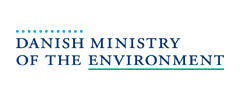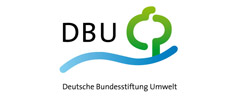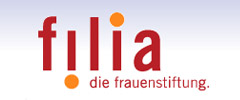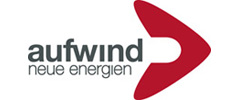WECF Gender in Sustainable Development Working Group
Gender News July 2004
28.07.2004 |Heike Spohr

Compilation of News for July 2004
1. EUROPEAN ELECTIONS: STAGNATION OF WOMEN’S REPRESENTATION FOR THE 1ST TIME IN 20 YEARS!
Provisional figures of members of the newly elected European Parliament show a percentage of just 30% women. This is disappointing, as for the first time since the 1984 European elections, the representation of women is stagnating and not raising above the critical mass of 30%. The proportion of seats won by women MEPs rose from 17.3% after the June 1984 elections to 29.6% after the 1999 elections, rising to 31% in 2004 due to replacements and resignations. The percentage of women observers from new Members States who joined the European Parliament in Spring 2003 was 14.3%. The provisional results show significant differences between countries, raging from 57.9% women in the Swedish delegation to no woman at all for Cyprus or Malta.
More information: http://www.elections2004.eu.int/ep-election/sites/en/sitemap/index.html
2. ACTION FOR AN EQUAL REPRESENTATION OF WOMEN AND MEN IN THE EUROPEAN COMMISSION! – While the EU heads of state and governments have removed the only reference to gender balance in decision-making in the European institutions from the Constitutional Treaty (see p. 3), EWL calls for an equal representation of women and men in the European Commission to be nominated in the coming weeks. EWL has drafted a model lobbying letter to be sent to governments. For more information, see:
http://www.womenlobby.org/Document.asp?DocID=750&tod=15555 or contact Cécile Gréboval at the EWL Secretariat: greboval@womenlobby.org
3. EUROPEAN GENDER INSTITUTE: Social Policy Council: Employment and Social Policy Ministers of the EU of 25 agreed on the creation of a EUROPEAN GENDER INSTITUTE in their meeting of 16 and 17 of June. It will act as a source of expertise and learning which will assist in bringing about greater gender equality in the EU.
4. BEIJING + 10:
There will not be a 5. UN World Conference on Women in 2005, but may be one between 2007 and 2010, at least that´s what many NGO promote. The idea of a conference next year is widely rejected within the NGO sector, because of a general “rollback” on the gender political agenda and its possible negative implications on the agreements of the Beijing Platform of Action of 1995. This rollback is situated within the context of a growing religious and political fundamentalism, increasing violence specially against women in armed conflicts and wars and a feminisation of the negative effects of globalisation, liberalisation and privatisation, among others.
Still there will be a review of the Beijing Platform of Action, the Beijing + 10 process. The UN sent a questionnaire to governments in order to gather the inputs for this review. The UN expressed its wish to have the civil society involved, which leaves it to every government to grant or not this kind of participation. At the same time national and international womens organisations and other NGO are discussing the elaboration of a shadow report representing their point of view.
On international level WEDO is one of the most active womens organisations concerned with the Beijing + 10 process. On their web site http://www.wedo.org/protect2.htm you can download relevant documents. WECF maintains a continuous coordination with WEDO.
LIFE e.V. in Germany is planning a specific German contribution on Chapter K of the Beijing Platform of Action, which is the chapter on “Women and Environment”.
It would be interesting to know if there are similar processes in your countries, and if you and your organisation is involved in such processes. Send us your information and we will put it on the mailing list platform.
5. NETWORK ACTIVIES IN CEE & CIS COUNTRIES:
KARAT is a regional coalition of organizations and individuals that works to ensure gender equality in the Central & Eastern Europe and the Commonwealth of Independent States countries, monitors the implementation of international agreements and lobbies for the needs and concerns of women in the Region at all levels of decision-making fora. KARAT members include NGOs from 20 countries: Armenia, Azerbaijan, Albania, Belarus, Bosnia & Herzegovina, Bulgaria, Croatia, Czech Republic, Georgia, Hungary, Latvia, Lithuania, Macedonia, Moldova, Poland, Romania, Russia, Serbia & Montenegro, Slovakia, Ukraine.
A Sub-regional alternative report for the Central and Eastern Europe (CEE) on “Beijing+5 - Platform for Action review: Abstract from the NGOs national recommendations and alternative reports” written by Karat Coalition member countries can be found on the KARAT web site http://www.karat.org/achievements/beijing_5.html.
6. THE CIVIC AND POLITICAL PARTICIPATION OF WOMEN IN CENTRAL AND EASTERN EUROPE is a EU-funded project managed by Amanda Sloat (Institute of Governance, Public Policy and Social Research) and Yvonne Galligan (Centre for the Advancement of Women in Politics) of Queen's University Belfast. More detailed information about the EGG project—including executive summaries of each work package—can be found at www.qub.ac.uk/egg .
Here a summary by Amanda Sloat:
While the enlargement process of the European Union (EU) has not explicitly emphasized equal opportunities for women and men, the new member states have implemented equality legislation, and now have statutes to deal with gender issues and non-discrimination clauses in their constitutions. They are also paying more attention to the challenge of increasing women's parliamentary representation.
The EGG project analyses the extent to which representative institutions and other organizations—such as political parties, trade unions, non-governmental organizations (NGOs) and social movements—enable women's participation and representation in political decision making and governance in the new EU member states. By looking at how the history of communist rule has affected the current political position of women, the project is providing recommendations to the European Commission and country governments in order to underpin effective future policy making. EGG is unique in that it is the first systematic attempt to analyse gender and enlargement, the civic and political participation of women in new member states, and the effectiveness of attempts by the Commission and new member-state governments to legislate on gender equality.
The research focuses on three questions. How have the twin forces of democratization and preparation for EU accession influenced women's civic and political participation in candidate countries? How are women's civic associations embedded in the equality policy framework in candidate countries? Are there specific strategies that could be adopted to enhance women's contribution to governance?
The first phase of the work developed a theoretical foundation, establishing a common vocabulary among participants and a historical framework within which to consider women's present civic and political participation; a final six-month dissemination phase will ensure that research results are disseminated locally, as individual country reports, and at European level, as comparative reports.
The project is divided into five substantive "work packages".
* Analysing Female Visibility, which collected data on women's representation in political and civic decision-making bodies, comparing and contrasting the situation pre- and post-1989.
* Mapping Women's Campaign for Change, which assessed the state of the women's movement in the post-1989 period and mapped the issues on which women's NGOs are lobbying for change.
* Implementing the Equality "Acquis", which assessed the extent to which the EU body of legislation on equality issues has been transposed, implemented and enforced.
* Identifying Barriers to Women's Participation, which built on previous work packages that identified the sites of women's under-representation, sought to understand why this has occurred and provided policy recommendations.
* Gender Mainstreaming, which conducted a full review of the mainstreaming infrastructure across all government departments and examined two specific policy issues (equal opportunities and trafficking) in order to assess the extent to which women's perspectives are incorporated in policy making.
7. “Tooling up for Gender and Energy”, is the title of a new paper that Margeret Skutsch elaborated for ENERGIA, that can be found on the ENERGIA website: http://www.energia.org/resources/papers/skutsch_tooling.pdf.
It focuses on project contexts in countries of the South, but has some useful information or can give ideas on how to design gender tools for energy projects as well in the Northern and Eastern hemisphere. It shows weaknesses of gender analysis methods in general (in standard frameworks, the variables specified, and types of data gathered are not relevant or not specified for the case of energy projects). She describes newly developed methods that meet requirements of gender tools for energy projects, like the EnPoGen methodology.

































